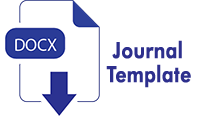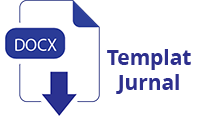Teachers’ Competency in Technology, Digital Innovation, and Creativity and Its Role in Supporting Curriculum Reform in Light of UNESCO’s Education 2030 Strategy
DOI:
https://doi.org/10.70148/jrise.v2i1.19Keywords:
Teaching Skills, Digital Technologies, Creativity, Curriculum Reform, Education Strategy 2030Abstract
The aim of the study was to assess the effect of the teachers’ competencies in technology, digital innovation, and creativity on curriculum changes within the context of UNESCO’s Education 2030 Strategy. The change in global educational standards towards sustainable, digitally-driven, and inclusive frameworks makes the adaptability of educators an essential factor. The influence of these competencies on core curriculum reform was investigated using PLS-SEM. Responses were gathered from a structured questionnaire from 263 business education teachers from different universities in Karachi, Pakistan. This study also highlights the impact of incorporated institutional support along with a nurturing an innovative and creative mindset towards solving curriculum issues. It has been discovered that there is a definite impact concerning the teacher’s ability to facilitate curriculum transformation through digital and creative skills. The study provides new dimensions in respect of educational reforms and shifts within the policies of teaching and instructional systems intended for fulfilling the objectives of Education 2030. It stresses the need for purposeful eective investment in teacher training in creative digital pedagogy so that meaningful advancements towards curriculum changes can be accomplished
References
Ally, M. (2019). Competency profile of the digital and online teacher in future education. International Review of Research in Open and Distributed Learning, 20(2).
Awad, A., Shemais, M., & Al-Embabi, M. (2024). Driving HR performance through digital transformation in educational directorates: A strategic imperative. Problems and Perspectives in Management, 22(4), 163-173.
Almagharbeh, W. T. (2025). The impact of AI‐based decision support systems on nursing workflows in critical care units. International nursing review, 72(2), e13011.
Almagharbeh, W., Alhassan, M., AlMotlaq, M., & Taher, R. (2019). Family needs of critically ill patients in Central Jordan: a family perspective. Hospitals, 12(16), 18-19.
Al-Akash, H., Aldarawsheh, A., Elshatarat, R., Sawalha, M., Saifan, A., Al-Nsair, N., … & Eltayeb, M. (2024). “We do others’ Jobs”: a qualitative study of non-nursing task challenges and proposed solutions. BMC nursing, 23(1), 478.
Awad, A., Kordy, A., Hassan, A., & Aal, H. A. (2025). The role of blockchain technology in advancing supply chain innovation: A descriptive-analytical study.
Awad, A. (2024). Artificial intelligence and marketing innovation: The mediating role of organizational culture. Innovative Marketing, 20(3), 170.
Almagharbeh, W. T., Alfanash, H. A., Alnawafleh, K. A., Alasmari, A. A., Alsaraireh, F. A., Dreidi, M. M., & Nashwan, A. J. (2025). Application of artificial intelligence in nursing practice: a qualitative study of Jordanian nurses’ perspectives. BMC nursing, 24(1), 92.
Agbonselohbor, B., Aslanoğlu, A., Bilgiç, N., Alsharawneh, A., Elshatarat, R. A., Saleh, Z. T., … & Eltayeb, M. M. (2025). Associated factors of Nigerian Nurses’ Emotion regulation, perceived stress, and coping mechanism during COVID-19 Pandamic: a cross-sectional study. African Health Sciences, 25(1), 84-110.
Awad, A., & Mahmoud, M. (2024). Impact of electronic customer relationship management on competitive advantage: Mediating role of customer satisfaction in EgyptAir. Problems and Perspectives in Management, 22(3), 276.
Ashour, A. M., Masa’deh, R., Hamaideh, S. H., Elshatarat, R. A., Yacoub, M. I., Almagharbeh, W. T., … & Eltayeb, M. M. (2024). Examining the influence of anxiety and depression on medication adherence among patients diagnosed with acute myocardial infarction. BMC psychology, 12(1), 473.
Abdelkader, R., Maabreh, R. S., Al-Dgheim, R., Altarawneh, N. S., Alrabab’a, M. H., Zaiton, H., … & Elshatarat, R. A. (2024). The impact of tobacco use and nicotine addiction on health: A literature review of nursing interventions for smoking cessation. Journal of Integrative Nursing, 6(4), 218-230.
Aslam, S., Majeed, M. U., & Hussain, Z. (2025). The Effect of NFTs Metaverse Engagement and Digital Personalization on Brand Accessibility: The Mediating Role of Inclusive Brand Strategies. In Metaverse and Sustainable Business Models in SMEs (pp. 291-316). IGI Global Scientific Publishing.
Armutcu, B., Majeed, M. U., Hussain, Z., & Aslam, S. (2025). The impact of digital voice of customer and product lifecycle management on Quality 4.0: moderating role of AI in SMEs. Journal of Manufacturing Technology Management, (ahead-of-print).
Alsaraireh, F., Al-Oran, H., & Al-Magharbeh, W. (2023). The Impact of Stress on Sleep Pattern and Academic Performance among Nursing Students in Jordan: A Cross Sectional Study. ASEAN Journal of Psychiatry, 24(4), 1-15.
Alsharawneh, A., Elshatarat, R. A., Alsulami, G. S., Alrabab’a, M. H., Al-Za’areer, M. S., Alhumaidi, B. N., … & Saleh, Z. T. (2025). Triage decisions and health outcomes among oncology patients: a comparative study of medical and surgical cancer cases in emergency departments. BMC Emergency Medicine, 25(1), 69.
Alsharawneh, A., Sawalha, M., Tabar, N. A., Elshatarat, R. A., Almarwani, A. M., Saleh, Z. T., … & Eltayeb, M. M. (2024). Impact of triage nurses’ recognition of acute coronary syndrome on patients’ clinical outcomes: A retrospective study. Heart & Lung, 68, 60-67.
Alsaraireh, M., Al-Kalaldeh, M., Alnawafleh, K., Dwairej, D. A., & Almagharbeh, W. (2025). Associated Factors Influencing Quality of Life and Knowledge Among Type 2 Diabetic Patients: A Cross-Sectional Study. Current Diabetes Reviews, 21(2), E090224226838.
Aldarawsheh, A. A., Saifan, A. R., Sawalha, M. A., Assaf, E. A., Alrimawi, I., Elshatarat, R. A., … & Eltayeb, M. M. (2024). Exploring the causes and consequences of non-nursing tasks among nurses in Jordan: An in-depth qualitative investigation. Applied Nursing Research, 77, 151791.
Bitegeko, R. M., Lawrent, G., & Cosmas, J. (2024). Applying the UNESCO ICT competency framework to evaluate digital competencies among undergraduate students in teacher education in Tanzania. Educational Technology Quarterly, 2024(3), 298-318.
Blyznyuk, T. (2018). Formation of teachers’ digital competence: domestic challenges and foreign experience. Journal of vasyl stefanyk precarpathian National University, 5(1), 40-46.
Caena, F., & Redecker, C. (2019). Aligning teacher competence frameworks to 21st century challenges: The case for the European Digital Competence Framework for Educators (Digcompedu). European journal of education, 54(3), 356-369.
Dreidi, M., Abed, D., Salameh, H., Sbeih, I. A., Asmar, S., Salameh, S., … & Almagharbeh, W. T. (2024). The effect of self-esteem on stress and coping mechanisms among nursing students during clinical training in Palestinian universities. International Journal of Practice-based Learning in Health and Social Care, 12(1), 59-69.
Din, A. L., Qamar, N., Abaid, T., Akhter, N., Alfanash, H. A., & Almagharbeh, W. T. (2024). Daily Management Insights: A Social Phenomenological Study Of Head Nurses. Frontiers in Health Informatics, 13(4).
El Gareh, F., Elmenssouri, A., Oulamine, A., & Hussain, Z. (2025). A PRISMA-Based Systematic Review on Organizational Commitment and Logistic Performance. Knowledge Sharing and Fostering Collaborative Business Culture, 213-240.
ElSayary, A. (2023). The impact of a professional upskilling training programme on developing teachers’ digital competence. Journal of Computer Assisted Learning, 39(4), 1154-1166.
Espejo Villar, L. B., Lázaro Herrero, L., & Álvarez-López, G. (2022). UNESCO strategy and digital policies for teacher training: The deconstruction of innovation in Spain. Journal of New Approaches in Educational Research, 11(1), 15-30.
Falloon, G. (2020). From digital literacy to digital competence: the teacher digital competency (TDC) framework. Educational technology research and development, 68(5), 2449-2472.
Fornell, C., & Larcker, D. F. (1981). Evaluating structural equation models with unobservable variables and measurement error. Journal of marketing research, 18(1), 39-50.
Ghonim, A., & Awad, A. (2025). Leveraging E-Marketing for enhancing customer knowledge management: A systematic review of tourism strategies in the Saudi Arabian context. Journal of Ecohumanism, 3(8).
Gisbert Cervera, M., & Caena, F. (2022). Teachers’ digital competence for global teacher education. European Journal of Teacher Education, 45(4), 451-455.
Hassan, H. M., Zubair, A., Helal, M. H., Almagharbeh, W. T., & Elmagzoub, R. M. (2025). New hope and promise with CRISPR-Cas9 technology for the treatment of HIV. Functional & Integrative Genomics, 25(1), 1-11.
Henseler, J., Ringle, C. M., & Sarstedt, M. (2015). A new criterion for assessing discriminant validity in variance-based structural equation modeling. Journal of the academy of marketing science, 43, 115-135.
Hussain, Z., & Khan, A. (2025). Driving Retail Growth: The Interplay of Customer-Centric Technology, Customer Accountability and Organisational Culture. In Marketing 5.0: The Role of Human-Mimicking Technology (pp. 13-26). Emerald Publishing Limited.
Hussain, Z. (2023). A Study of Employees’ Perceptions on Industry Revolution 5.0 and Its Advantages: A Case Study of the Manufacturing Industry of Pakistan. Business, Technology and Finance, 25.
Hussain, Z. (2024). Electronic Word of Mouth (eWOM) and Consumer Purchasing Behaviour: A Study in Karachi’s Digital Era. In Digital Influence on Consumer Habits: Marketing Challenges and Opportunities (pp. 159-169). Emerald Publishing Limited.
Hussain, Z., & Mari, A. K. (2023). Legal Protection of Customer Privacy on E-commerce: A comparative study of Iranian and American Law. International Journal of Marketing, Communication and New Media, (12).
Hussain, Z. (1988, May). Enhancing Transparency and Accountability in Sadaqah Crowdfunding Platforms: Leveraging Blockchain Technology for Optimal User Experience. In Annual International Conference on the Theory and Applications of Cryptographic Techniques (pp. 351-367). Cham: Springer Nature Switzerland.
Hussain, Z. (2025). AI-driven personalization and purchase intention in modest fashion: Sharia compliance as moderator. International Journal of Halal Industry, 1(1), 33-45.
Hussain, Z. (2023). The Use of Web 3.0 in University E-learning, Quality Assurance, and Knowledge Management. In Advances in Distance Learning in Times of Pandemic (pp. 155-176). Chapman and Hall/CRC.
Johnstone, S. M., & Soares, L. (2014). Principles for developing competency-based education programs. Change: The Magazine of Higher Learning, 46(2), 12-19.
Krstikj, A., Sosa Godina, J., García Bañuelos, L., González Peña, O. I., Quintero Milián, H. N., Urbina Coronado, P. D., & Vanoye García, A. Y. (2022). Analysis of competency assessment of educational innovation in upper secondary school and higher education: a mapping review. Sustainability, 14(13), 8089.
Kamel, M., Aleya, S., Almagharbeh, W. T., Aleya, L., & Abdel-Daim, M. M. (2025). The emergence of highly pathogenic avian influenza H5N1 in dairy cattle: implications for public health, animal health, and pandemic preparedness. European Journal of Clinical Microbiology & Infectious Diseases, 1-17.
Mtebe, J. S. (2020). Applying UNESCO ICT competency framework to evaluate teachers’ ICT Competence Levels in Tanzania. In Handbook of research on innovative pedagogies and best practices in teacher education (pp. 350-366). IGI Global.
Mahmoud, M., Shma, T., Aziz, A., & Awad, A. (2025). Integrating knowledge management with smart technologies in public pharmaceutical organizations. Knowledge and Performance Management, 9(1), 31.
Mari, I. H., & Hussain, Z. (2021). Climate Change in Pakistan: Govt Efforts to Reduce the Climat Change Threats. European journal of innovation in nonformal education, 1(1), 1.
Mezirow, J. (2018). Transformative learning theory. In Contemporary theories of learning (pp. 114-128). Routledge.
Mishra, P., & Koehler, M. J. (2006). Technological pedagogical content knowledge: A framework for teacher knowledge. Teachers college record, 108(6), 1017-1054.
Martínez-Pérez, S., Cabero-Almenara, J., Barroso-Osuna, J., & Palacios-Rodríguez, A. (2022, June). T-MOOC for initial teacher training in digital competences: Technology and educational innovation. In Frontiers in Education (Vol. 7, p. 846998). Frontiers Media SA.
Ong, Q. K. L., & Annamalai, N. (2024). Technological pedagogical content knowledge for twenty-first century learning skills: The game changer for teachers of industrial revolution 5.0. Education and information technologies, 29(2), 1939-1980.
Saleh, Z. T., Aslanoğlu, A., Almagharbeh, W. T., Fadila, D. E. S., Nagoor Thangam, M. M., Al‐Dgheim, R., … & Ebeid, I. A. (2025). Reducing sedentary behavior improves depressive symptoms among patients with heart failure enrolled in a home‐based mobile health app cardiac rehabilitation. Journal of Nursing Scholarship, 57(3), 394-403.
Saleh, Z. T., Aslanoğlu, A., Elshatarat, R. A., Al-Za’areer, M. S., Almagharbeh, W. T., Alhejaili, A. A., … & Alasmari, A. A. (2025). Exploring the reasons and significant influencing factors of serious turnover intentions among nurses in Saudi Arabia. Journal of Education and Health Promotion, 14(1), 206.
Sahin, I. (2006). Detailed review of Rogers’ diffusion of innovations theory and educational technology-related studies based on Rogers’ theory. Turkish Online Journal of Educational Technology-TOJET, 5(2), 14-23.
Saleh, Z. T., Aslanoglu, A., Al-Dgheim, R., Sawalha, M. A., Elshatarat, R. A., Al-Akash, H. Y., … & Alharbi, M. K. (2024). Effectiveness of Triage Professionals’ Knowledge and Experience on Their Ability in Early Diagnosis and Consequent Treatment of Acute Coronary Syndrome: A Literature Review Study. Research Journal of Pharmacy and Technology, 17(8), 4075-4082.
Subih, M., Elshatarat, R. A., Sawalha, M. A., Almarwani, A. M., Alhadidi, M., Alrahahleh, M., … & Mohamed, N. A. (2024). Exploring the Impact of Cardiac Rehabilitation Programs on Health-Related Quality of Life and physiological outcomes in patients Post Coronary artery bypass grafts: a systematic review. Reviews in Cardiovascular Medicine, 25(4), 145.
Tomczyk, Ł. (2024). Digital competence among pre-service teachers: A global perspective on curriculum change as viewed by experts from 33 countries. Evaluation and Program Planning, 105, 102449.
Tomczyk, L., & Fedeli, L. (2021). Digital Literacy among Teachers—Mapping Theoretical Frameworks: TPACK, DigCompEdu, UNESCO, NETS-T, DigiLit Leicester. In Proceedings of the 38th International Business Information Management Association (IBIMA) (pp. 244-252). International Business Information Management Association.
Villar-Onrubia, D., Morini, L., Marín, V. I., & Nascimbeni, F. (2022). Critical digital literacy as a key for (post) digital citizenship: an international review of teacher competence frameworks. Journal of e-Learning and Knowledge Society, 18(3), 128-139.
Worku, M., Belay, S., Molla, T., Amare, A., Tigabie, M., Almagharbeh, W. T., & Assefa, M. (2025). Bloodstream infections with emphasis on Methicillin-resistant Staphylococcus aureus at the University of Gondar Comprehensive Specialized and Referral Hospital, Northwest Ethiopia. BMC Infectious Diseases, 25(1), 1-6.
Yacoub, M. I., Aslanoğlu, A., Khraim, F., Alsharawneh, A., Abdelkader, R., Almagharbeh, W. T., … & Saleh, Z. T. (2025). Comparing E-Cigarettes and traditional cigarettes in relation to myocardial infarction, arrhythmias, and sudden cardiac death: a systematic review and meta-analysis. Biological Research For Nursing, 27(1), 168-185.
Downloads
Published
Issue
Section
License
Copyright (c) 2025 Rizwan Ahmed (Author)

This work is licensed under a Creative Commons Attribution 4.0 International License.











